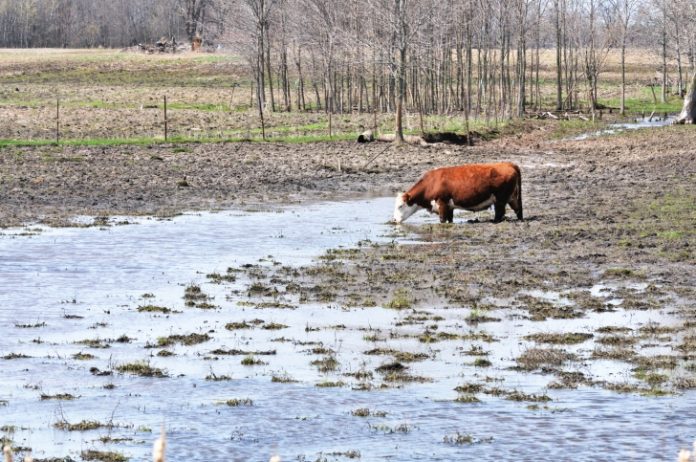A three-judge panel of the 10th U.S. Circuit Court of Appeals ruled a district judge erred in enjoining the federal government from enforcing the Navigable Waters Protection Rule (NWPR) within Colorado.
Under former President Donald Trump, the U.S. Environmental Protection Agency (EPA) issued the NWPR to clarify longstanding ambiguities about what constituted waters in the United States that legally fall under federal jurisdiction under the 1972 Clean Water Act (CWA) and what waters rightly fall under state or purely private jurisdiction.
The Trump administration acted to clarify federal jurisdiction after the U.S. Supreme Court struck down the EPA’s previous definitions of the scope of federal jurisdiction as being both too expansive and too vague.
Under the NWPR, in most instances persons and states will no longer have to seek federal permission to manage or alter ephemeral, temporary waters not tied in some substantial way to navigable waters.
Colorado Challenge
Colorado joined other states in suing to block the NWPR, arguing the EPA unlawfully limited federal jurisdiction over many bodies of water and wetlands with a “significant nexus” to navigable waters as directed in a previous Supreme Court decision.
The NWPR’s definition of protected waters applied to a “smaller number of Colorado waters than at any time since the passage of the Clean Water Act in 1972,” said Colorado’s May 2020 complaint. Colorado asserted the NWPR was unlawful, arbitrary, and capricious, suffered from procedural flaws, and violated the National Environmental Protection Act.
U.S. District Judge William J. Martinez, appointed by President Barack Obama, agreed, granting Colorado a preliminary injunction three days before the rule was to take effect. His ruling required the EPA and the U.S. Army Corps of Engineers to continue to administer CWA permitting under the prior regulations within Colorado.
Martinez said he was concerned the Trump administration’s rule would result in significant water pollution because the pandemic disrupted Colorado’s efforts to shape its own rules before the NWPR took effect.
“[R]egardless of cause, the record shows that violations of Section 404 consistently happen, requiring enforcement action,” said Martinez’s decision. “At least some of that enforcement burden (i.e., filling in Disputed Waters) will now fall in Colorado’s lap.
“That share of the enforcement burden is not at all minimal or speculative. … Colorado asserts, and the Agencies do not dispute, that about half of state waters protected by the Current Rule will be unprotected by the New Rule,” Martinez ruled. “For these reasons, the Court finds that Colorado is poised to suffer an injury in fact that is fairly traceable to the New Rule, and would be redressed by a favorable ruling in this case. Moreover, that injury is certainly impending and would be irreparable.”
A federal judge in California rejected a request for a nationwide injunction against the NWPR in June 2020, just hours before Martinez ruled in favor of Colorado.
‘It Is Pure Speculation’
The federal government, joined by 14 national trade associations, appealed Martinez’s ruling. They argued Colorado had failed to prove it would suffer “irreparable injury” without a preliminary injunction. Plaintiffs also argued Colorado had sufficient time to craft its own rules after Trump first indicated his administration would rewrite the Obama administration’s Waters of the United States rule, which federal courts had blocked from taking effect.
A three-judge panel agreed, unanimously ruling on March 2 the district court’s injunction was unjustified.
“The record evidence raises, at most, the mere possibility of the potential for a small increase in Colorado’s enforcement burden at some point in the future,” wrote Senior U.S. Circuit Judge Bobby Baldock for the court. “On this record, it is pure speculation whether the NWPR’s reduction in federal jurisdiction would result in an increase, rather than a decrease or no change, in the number of dredge and fill violations committed in Colorado.
“When predictions are so uncertain, an injury is not cognizable—let alone sufficient to warrant the extraordinary remedy of preliminary injunctive relief,” Baldock’s decision said. “Because Colorado has failed to show the NWPR poses an actual and imminent risk of environmental harm within the State, we decline its invitation to affirm the district court’s order based on this alternative claim of irreparable injury.”
H. Sterling Burnett, Ph.D. (hsburnett@heartland.org) is the managing editor of Environment & Climate News.


























